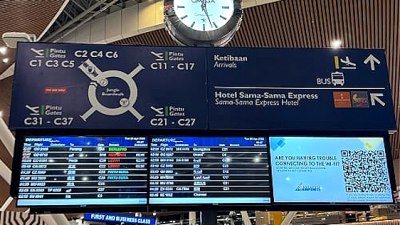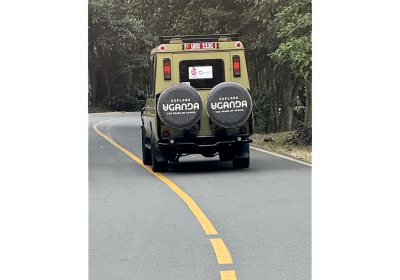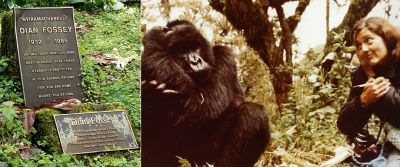Did you know that forests make up approximately a third of the Earth’s land area or 4.06 billion hectares? 54% of all forested areas in the world can be found in five countries: Russia, Brazil, Canada, US and China.
The world’s forests are scattered across four major climate regions: boreal, temperate, tropical and subtropical. Of these, 45% of the forests are tropical rainforests, including those in Malaysia, and they form the most expansive and vital habitats for the world’s bio-resources as well as freshwater and oxygen generators.
Unfortunately, only 20% of the world’s forest areas are classified as permanent biological, water source and land protection areas.
You might be even more shocked to learn that not all forested areas of our world are public properties, as some 73% belong to national or political bodies while 22% are privately held. In South America in particular, 33% of the forests are private properties that are out of bounds to outsiders.
As a matter of fact, 80% of the world’s living species have to rely solely on the forest ecosystem for survival. Forests are the habitats and homes for 60,000 species of trees, 80% of amphibians, 75% of birds and 65% of mammals.
At the same time, they are playing superiorly important roles in reducing carbon emissions and mitigating climate change, providing sustainable food to the people while reducing starvation and poverty.
In view of this, we must do our utmost to stop deliberate felling of trees for the well-being of our posterity.
Despite the fact forests are such a priceless asset to our planet, a total of 420 million hectares of forests have been illegally logged worldwide since 1990.
Additionally, more than 10 million hectares of forests are destroyed in wildfires or man-induced disasters each year. Do you know what that means? It means that 2,739 hectares of forests vanish from the Earth’s surface every day, or 114 hectares every hour, 1.9 hectares every minute, or the area of a football field every six seconds!
The above data have been released by the UN Food and Agriculture Organisation (FAO) Global Forest Resources Assessment 2020. We need to ponder over this seriously, as once they are gone, they will be gone forever.
 Little wonder we don’t see traces of animals and birds inside the entrance of the 4,343 sq km Taman Negara at Kuala Tahan, Pahang. This is because forests on the opposite bank of the 153km Sungai Tembeling have been logged to make way for oil palm plantation and human settlement.
Little wonder we don’t see traces of animals and birds inside the entrance of the 4,343 sq km Taman Negara at Kuala Tahan, Pahang. This is because forests on the opposite bank of the 153km Sungai Tembeling have been logged to make way for oil palm plantation and human settlement.
Besides causing global warming, landslides and depletion of animal habitats, deforestation has also forced the expedited “evolution” of the dying nomadic Batek aboriginal community numbering just over a thousand within the national park.
During my 40 years of travelling life, I have never before been stranded twice inside my own town: 107 days from March 18, 2020 during the first round of MCO, followed by another 403 days from last October during the second round of lockdcowns, for a total of 510 days!
Even a simple luxury like travelling to a different state was inconceivable then. The worse thing is that we were not only denied our most priced freedom of movement, but also the precious time squandered during those months of complete standstill.
And now, with the travel bans eventually lifted, we should more than ever appreciate the freedom of travelling around under clear blue sky and pristine white clouds.
And I finally get to pick up my mic again as we embark on our THE FIRST expeditions 2.0. This time, some 28 of us have opted to walk into the heart of the million-year-old tropical rainforests that are not too far from our city.
We merge ourselves into Mother Nature strolling along the trails within Taman Negara, have a close encounter with the forest ecosystem and get our souls thoroughly cleansed by it. Step by step we rub our shoulders with 3,000 species of trees, along with 150 species of mammals, 500 species of birds, 67 species of reptiles and 50 species of freshwater fishes.
Inside this virgin forest, we not only manage to find our most natural human selves but also get to explore the most original, unsullied face of our planet Earth.
Unfortunately, what should have been a paradise of natural symphony of bird chirps and insect buzzes has been rudely disrupted by the sound of electrical saw and vehicle horns from afar. And the streams that used to be crystal clear are now choked with mud and endless sorrows. Are we prepared to face yet another ecological catastrophe soon?
Fortunately as our boats continue cruising further inland, we have finally arrived at the heart of the world’s most celebrated rainforest.
In fact, the FAO report serves to remind us all that the eight billion people on this planet are merely leasing lands from our planet to set up their abodes here momentarily.
Most importantly we must conform to the tenancy agreement signed between us and the Landlord. If some day the Landlord feels so frustrated with its human tenants and decides to take back the lands, we will be left homeless!
Who knows the coronavirus is serving us an official warning notice with more to come soon?
(Lee San is Founder and Group Executive Chairman of Apple Vacations. He has travelled to 132 countries, six continents, and enjoys sharing his travel stories and insights. He has also authored five books.)
ADVERTISEMENT
ADVERTISEMENT








































